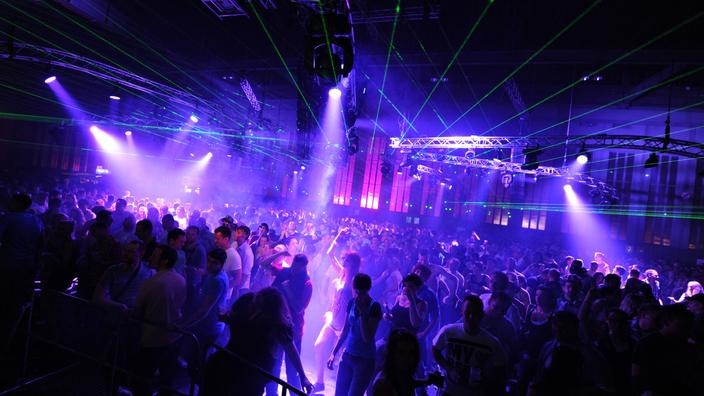Can Berlin techno be recognized as intangible heritage of humanity by Unesco?
This is the bet taken by Dr. Motte, a Berlin DJ known for having created the Love Parade and more recently Rave The Planet, supported by many club managers and DJs in the city.
The objective is to classify a number of the city's legendary clubs and thus ensure the continuity of a sector affected by the health crisis and gentrification.
"Maintain that old spirit"
On both sides of the Rhine, the Channel or the Atlantic, the nightlife is dying, and this observation does not date from the new administrative closures decided to curb the Covid-19 epidemic.
Berlin nightlife is no exception.
This precarious situation prompted DJs and club managers to take action.
Read alsoWhen techno moves historic monuments
More than a symbolic recognition, it is a facilitated economic and administrative life which is in sight.
“It would mean that the government and the authorities must help the culture to endure. This would mean easier access to state money for support. If we have this status, we could support clubs with lower taxes, and it could affect building and trade laws, ”
explains Dr. Motte to
DJ Mag
. Thus, this UNESCO protection would provide Berlin temples with protection against rising rents and the problems regularly encountered with the public authorities, and
"would greatly contribute to maintaining this old spirit"
explains DJ Alan Oldham at
Guardian
, that of a
“free, wild, creative”
Berlin
.
The process should take several years, during which the actors of Berlin techno will have to convince Unesco that Berlin and its techno are part of “
practices, representations, expressions, knowledge and know-how (...) that communities, groups and, where appropriate, individuals recognize as part of their cultural heritage
”, according to the definition given by the United Nations.
Among the latest recipients of the ranking are Franco-Swiss watchmaking know-how, sauna culture in Finland, Argentinian chamamé dance and Maghrebian couscous.
The fall of the wall and the abandoned warehouses
Born in Detroit, in the northeastern United States in the mid-1980s, techno quickly spread to Europe, and its arrival coincided with the fall of the Berlin Wall. Disused Soviet warehouses are playgrounds for young techno fans to reclaim. The 1990s are the years of hedonism in the German capital, and techno is the soundtrack of this new freedom.
“After the fall of the Berlin Wall, techno transformed the city of Berlin. The young people of the East loved it, the young people of the West loved it and they were linked by it ”
explains to the Guardian Dimitri Hegemann, founder of the Tresor club, a Berlin nightclub that opened in 1991. The aspect mainly instrumental techno also makes it music easily adopted by a non-English speaking audience. So,
“in 1989, 1990, people from Eastern countries, like Poland, came to the Tresor, and they didn't speak English. This new generation of techno from Detroit, Underground Resistance and so on, had no words. There were no stupid messages. It was just music you could dance to ”,
complete the club boss.
The city's reputation in this area is such that some of the precursors from Detroit such as Juan Atkins or Alan Oldham come to live in Berlin.
Read alsoThe Berghain, Berlin's temple of techno, turns on the sound after 19 months of closure
The opening of Berghain in 2004 gives an international aura to Berlin techno.
Located in an old austere power station, the ban on taking photos inside and the difficulty in accessing this establishment which does not choose its clientele according to common criteria, make Berghain the place of all fantasies.
The Love Parade and the various festivals of the kind organized at the former Tempelhof airport also help to give the city the status of European capital of techno.
If successful in their approach, Berliners would join several local French practices also recognized as intangible heritage of humanity, such as traditional Breton dances, the know-how of Alençon lace, or Aubusson tapestry. .

